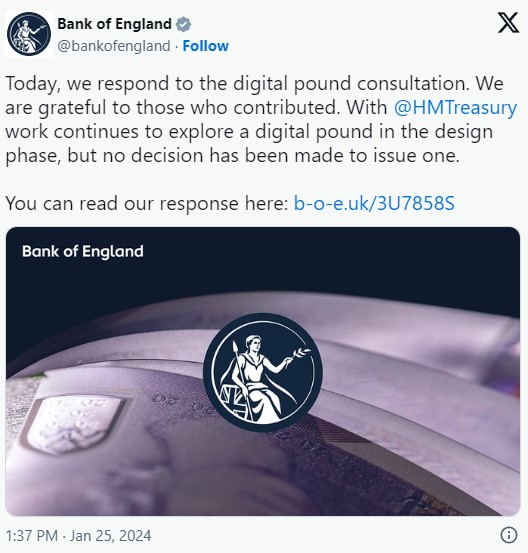In recent days, former US President and current candidate Donald Trump made a statement against CBDCs. As CBDCs continue to be debated around the world, a development has also occurred on the side of the United Kingdom.
Anxiety in the United Kingdom
The UK government appears to be pressing the Bank of England and HM Treasury for more transparency regarding the potential costs associated with the launch of a CBDC.
Many UK citizens fear that the introduction of a digital pound, if approved, could pave the way for state surveillance of financial transactions and lead to a loss of privacy.
A spokesperson for CryptoUK commented on the issue:
We want to see much more detail from the government and the Bank of England on this important issue, including a clearer action plan and timeline for the digital pound. As the industry continues to evolve and our members demand more certainty from regulators and lawmakers, this current lack of clarity and direction risks creating uncertainty and disappointment for those looking to build, invest in, and grow crypto digital asset businesses in the UK.

BoE and HM Treasury have stated that if the CBDC plan progresses, the digital sterling, also referred to as ‘Britcoin’ by the public, is expected to be in the market before 2025.
According to a statement by the UK government, a team including officials overseeing economic policy has experienced several different events since the initial idea of a digital pound emerged.
US Election Agenda Centers on CBDCs
On the other hand, in the United States, the digital dollar has become a focal point of debate ahead of the planned 2024 Presidential Elections in November and could become a campaign issue.
Known for his firm stance against CBDCs, Florida Governor Ron DeSantis, who promised to ban the currency if elected, will no longer be in the starting race, but former US President and leading Republican figure Donald Trump has clearly stated that he would “never allow” a digital dollar in order to “protect Americans from government oppression.”


 Türkçe
Türkçe Español
Español









